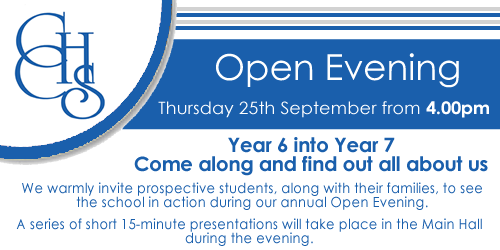CCHS Remote Learning
The information on this page will support our students to access remote learning for independent learning/revision, closure of the school or if individuals are unable to attend school but are able to learn.
Students should follow their curriculum overviews using the links provided below, along with the resources on their google classroom.
Learning at Home Resources
Quick Links
Accessing Online Resources
If you are having an access issue, refer to our ‘How To Log in…’ webpage or contact your teacher for assistance. If you are unable to contact them through Google Classroom – send an email to admin@cchs.school with you teacher's name in the title and this will be forwarded to them.
Having trouble accessing online learning?
The most common problem is that students are logged into a personal Goggle account, rather than their school Google Account.
• Left-click the logo (or the blue 'Sign in' box) in the top right-hand corner of the Google landing page (next to the nine dot Google waffle) to see which account is currently active.
• There is an option to sign-out of the current account, to sign-in to a different account or add a new account.
• Students can then log in to Google using their school email address and their Google password
• See the ‘How To Log in…’ webpage for details on the format of students' email addresses, their default passwords and instructions on how to change the default password, to secure their account
Google Meets and Live Lessons
Live lessons will include screen sharing and audio but not video. Guidance on how to join a Google Meet and our expectations for behaviour during live lessons are outlined in our 'CCHS Live Lesson Instructions and Code of Conduct' document.
Expectations for behaviour whilst taking part in live lessons will be high. If students do not meet those expectations, they will be removed from the lesson (removed from the meet) and only able to access the recorded version.
If you have a concern about a live lesson please do not join the lesson and instead report your concerns to the teacher taking the live lesson, via your Class group in Google Classroom or send an email to admin@cchs.school with you teacher's name in the title and this will be forwarded to them.
Stay Safe Online
Working from home, we will all make greater use of computers and online resources. Some key advice for those working from home:
- Be kind online – when using group chats or social networking sites be mindful of what you say and how you say it.
- Keep your personal details private – if you have not met the person then do not share any information, they could be a fake using this crisis as an opportunity.
- Think before you post, send or forward – there are Coronavirus scams out there, do not allow yourself or your family to fall victim.
- Do not share your password with others – it can be frustrating not getting into a document or an online resource, but passwords are there for a reason.
- Be careful who you webcam/FaceTime with - if you are asked, always let a trusted adult know. Some attachments are malware designed to corrupt your device - do not open an attachment unless you are 100% sure it is safe and from a trusted source
- If anything happens online that worries or upsets you - Tell a trusted adult or report the incident on the CEOP website
- Visit our student e-Safety webpage for further guidance about keeping safe online. Recommended websites offering information and practical advice on staying safe online










